Southwest Kansas Day One
Wednesday, November 6, 2024
Submitted by: Megan Anguiano
After a couple months apart, KARL class XVII began our second seminar by sharing warm welcomes all around, checking into our hotels and loading the Garden City Community College Broncbusters bus to the enjoy a lunch at the Southwind Country Club. We had a very full day and absorbed some great information. Below is a brief summary of each portion of our program:
· Garden City Manager, Matt Allen, shared with us some history of Garden City ranging all the way back to its founding to where they are today. He also shared his personal experience as a Garden City resident as well as some specific ways that the city has worked to embrace, serve and support a diverse population. He highlighted that at any given time there is anywhere from 25-40 languages spoken in Garden City schools.
· Immigration Panel: Panelists discussed their personal experiences in navigating the complex challenges of becoming a U.S. citizen including the cost of legal services to apply and the length of time it takes for applications to be processed. Panelists discussed the pros/cons and differences in a variety of different avenues they have utilized including green cards, H-2A visas, TN visas, and permanent residency.
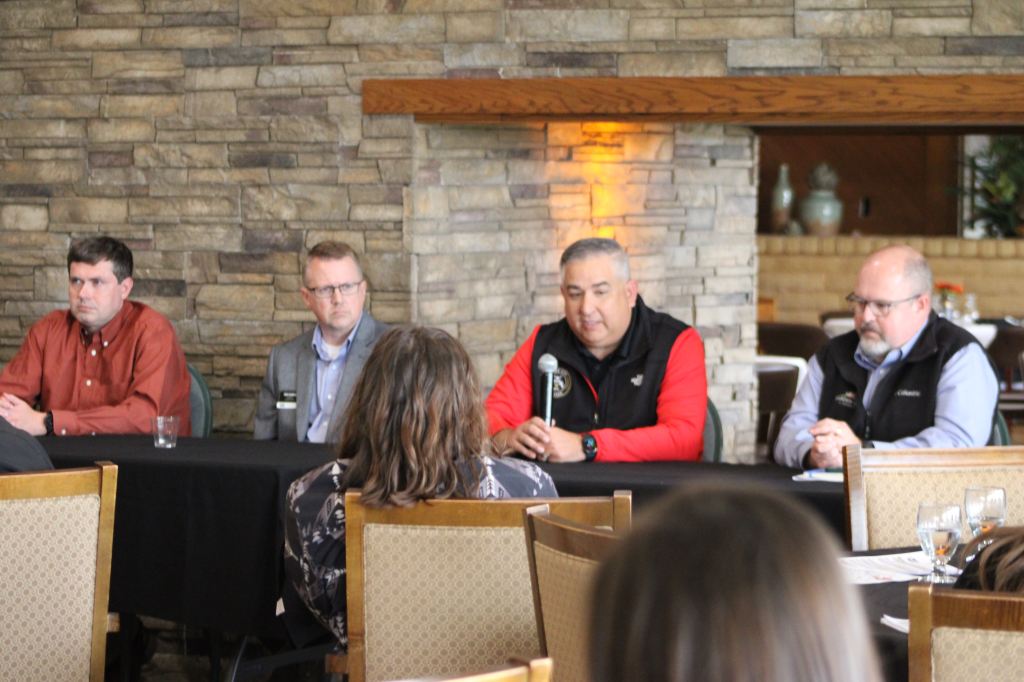
· Water Panel: Participants discussed what municipalities and businesses are doing to conserve and recycle water, including some impressive technological advances that have made it possible to keep water use static despite the rise in population. The panel also entertained questions and shared their plans to continue to innovate and recharge the Ogallala aquifer.
Brian Price hosted us for a tour of Brookover Feedyard:
o Highlighted their cattle that were a part of the “Prime Pursuit” branded program. These cattle arrive at the feedyard with electronic ID tags and are age, source and breed verified. They are processed by Creekstone in Ark City and are used to supply Walmart stores.
o Touched on a wide variety of challenges cattle feeders face when trying to remain profitable and sustainable including packer concentration, high input costs (including wages), maintaining accurate records, environmental issues, low supply of calves, and the rising average age of cattle feeders.
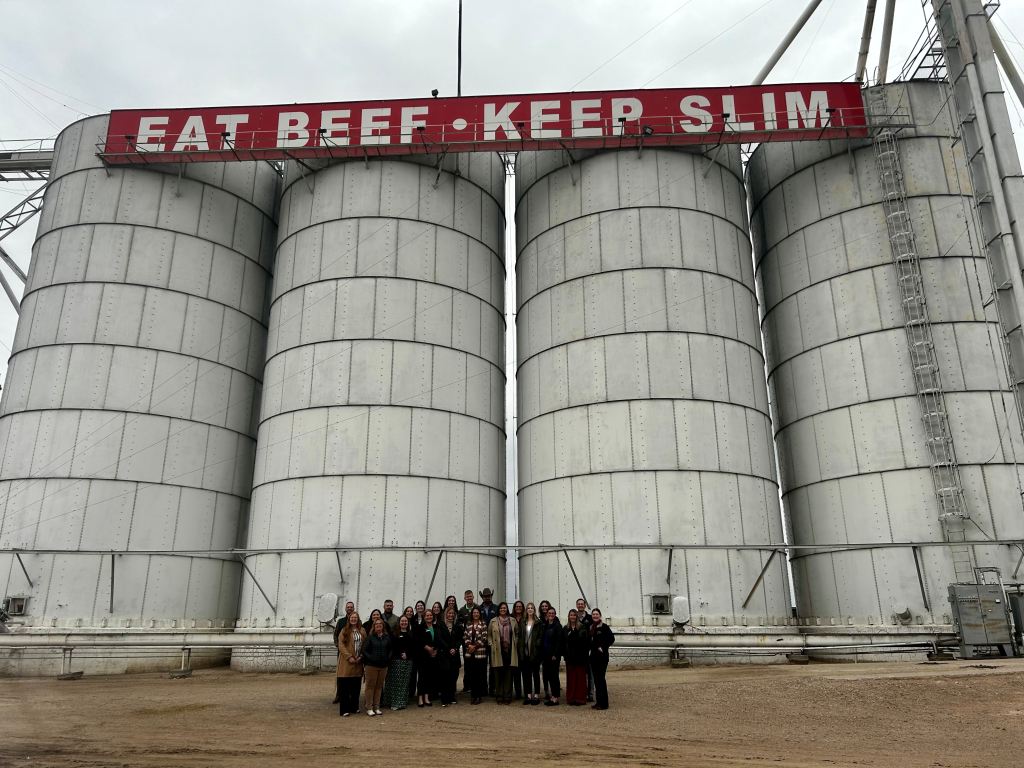
We returned to the hotel for our last event of the evening. We enjoyed meeting and socializing with KARL fellows, enjoyed a steak dinner and heard from Dr. Dan Thompson.
Dr. Thompson spoke about his career in the beef industry and how we can work together as an industry to better meet consumer demand while remaining profitable and sustainable. He highlighted that retailers want to understand what is going on in the beef industry and that consumers believe safe food comes from healthy animals and that a healthy animal is a happy animal.
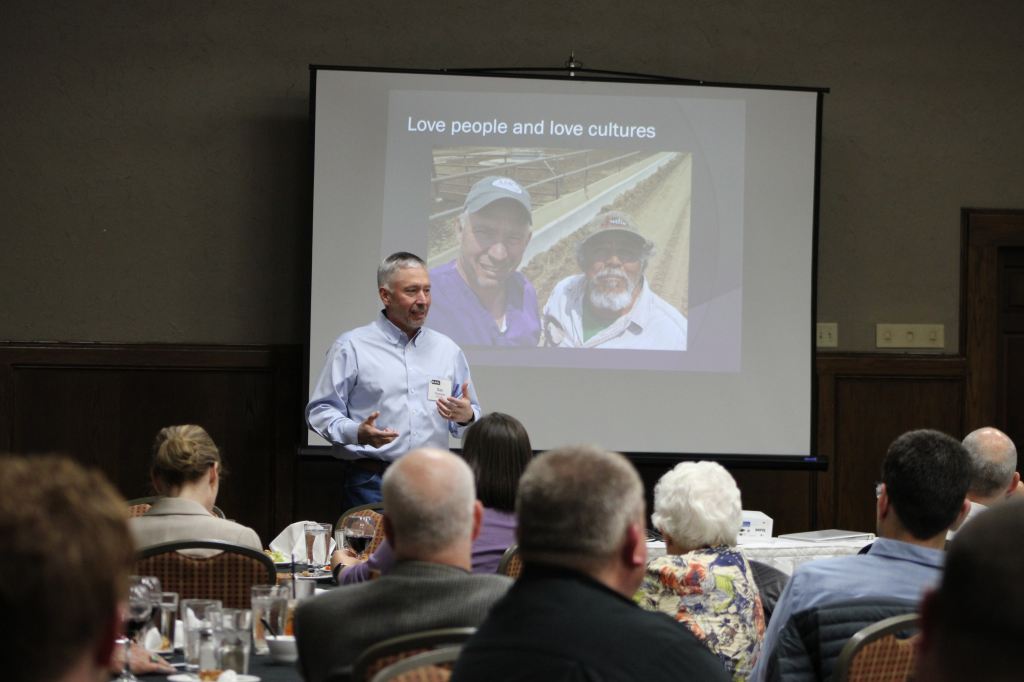
He also touched on the fact that beef is a very socioeconomic diverse product. It can cater to everyone from a white linen restaurant patrons that are willing to pay a premium for a quality cut of steak and to the single mom purchasing ground beef as a cheap protein source to feed her family.
Southwest Kansas Day Two
Thursday, November 7, 2024
Submitted by: Marsha Boswell
Garden City & Liberal
Thursday was a long day, with tours scheduled at a beef packing facility, ethanol plant and dairy in Garden City and Liberal.
The day began with Ryan and Justine giving their brown bag bios, followed by finalizing class standards over breakfast. The committee had come up with 12 standards in a clock format, but it was then decided to condense them into four main ideas.
After the standards were agreed upon, the class boarded the bus for our first stop of the day – Tyson. We visited their teaching center, which is a collaboration with Garden City Community College. The company provides opportunities for employees to get continuing education and GEDs.
There is very much a family culture at Tyson. Employee retention is their goal; and this year 28 of the approximately 3,500 employees are celebrating 40 years of service. Overall the average years of service is about 20 years.
At Tyson, they utilize the entire animal; “everything but the moo” and the spinal cord. Employees hand cut every piece, as automation is difficult with varying carcass sizes.
The class toured the cold and hot sides of the plant, everything from packaging of specific beef cuts to the initial removal of the hide.
After the Tyson tour, the class boarded the bus again to head toward Liberal. Class XVI member Eli Svaty provided a history of agriculture in Kansas during the bus trip. He pointed out that Kansas started with socialist roots, reemphasized that we must have employees who are willing to do hard jobs and ended with, “Southwest Kansas is pretty cool.”
Upon arrival at Arkalon/Conestoga, the class ate lunch and heard from Danny Granodos. The ethanol plant utilizes corn and grain sorghum to produce ethanol. They “squeeze every bit of alcohol from the grain.” The plant has been running for 17 years and shuts down only two days a year for preventative maintenance.
DDGs are sent to local feeders, and C02 is pushed underground to Texas, allowing them to utilize their byproducts and generate additional revenue. They have a plan to become a zero carbon facility.
The final tour of the day was at High Plains Dairy, which is run by Carl Clawson, a member of Class XVI and his father David.
Their cows are milked twice a day in the milking parlor, a large moving circle that milks while the cows are on and finishes by the time they have reached where they started.
They currently milk 16,000 cows twice a day, with the milk going to DFA. They are in the midst of an expansion with two more barns and milking parlors being built to provide milk for Hilmar Cheese, beginning in January. There will be 24,000 more cows to be milked twice a day. The main reason for the immense size of the operation is for efficiencies of scale. They are able to control costs and be the low cost producer.
Cows are bred each year, to continue providing fresh milk. The calves are fed colostrum immediately, and then sent within the first 12 to 24 hours to be raised in the Texas panhandle. The heifers will return at maturity to join the milking team.
“Every day is a good day in the barns,” Clawson said, as the cows have automatic temperature control, fans, open stalls, mattresses for bedding, and they don’t have to suffer extreme cold or heat from outdoor temperatures.
The highlight of the trip to the dairy was being able to witness the birth of a baby calf, something that two members of the class had never seen before in person.
After the dairy, the class loaded the bus for the trip back to Garden City, where we were hosted by Larry and Becky Jones for dinner. Dr. Tera Barnhardt was the dinner speaker, and she talked about her work as a veterinarian working with beef and dairy cattle in Southwest Kansas as well as her concerns about H1N1 in dairy cattle.
After a very long day with several great tours and speakers, the class returned to the hotel full of knowledge and exhaustion.
Southwest Kansas Day Three
Friday, November 8, 2024
Submitted by: Colleen Eberle
Kansas Agriculture and Rural Leadership (KARL) Program – Southwest Seminar: Day 3 Recap
Day 3 of our Southwest Seminar showcased the spirit of innovation, leadership, and growth driving the agricultural industry forward.
From grain processing to family farming to the development of sustainable food products, each stop highlighted how Kansas leaders are embracing challenges and opportunities in agriculture.
Our day began at WindRiver Grain in Garden City, where we enjoyed a festive fall breakfast before exploring the facility’s operations. WindRiver LLC, owned by Cargill and various co-ops, is a rail import and export hub that processes up to 62,000 bushels of grain daily.
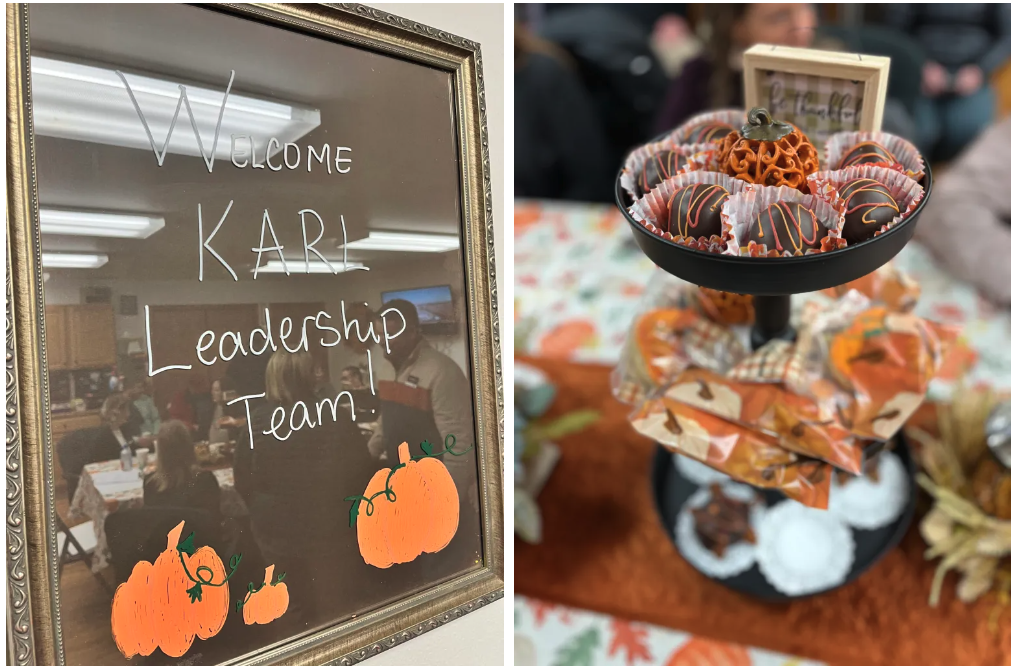
This summer, the facility hit a peak of 1.4 million bushels in a single week, servicing ethanol plants, feed mills, and feedlots across the region. Innovation is at the heart of their work, with a strong focus on expanding capabilities to meet new market demands.
Leadership is equally vital, as the company invests heavily in the professional and personal development of its team, fostering a culture of safety, collaboration, and forward-thinking. WindRiver exemplifies how strategic partnerships and an entrepreneurial mindset can unlock growth within the agricultural supply chain.
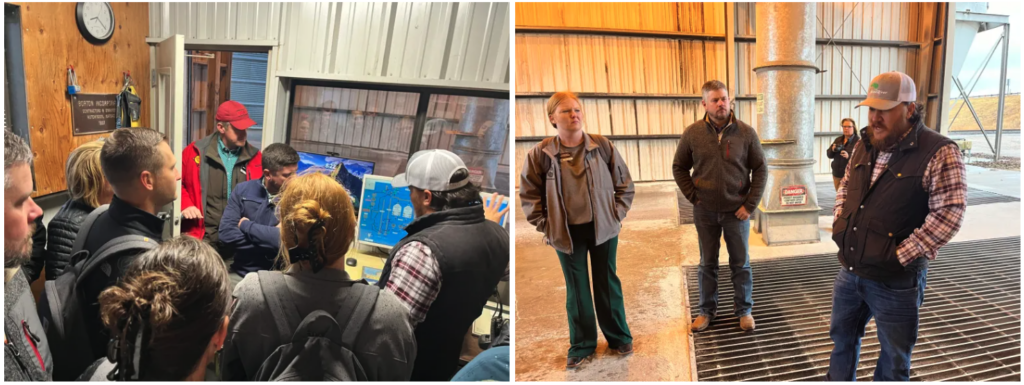
From there, we traveled to Vulgamore Farms in Scott City, where brothers Brian and Myles Vulgamore shared their journey of growth and adaptation. Over the years, their family farm has embraced significant advancements in technology and efficiencies, enabling them to produce more with fewer resources.
Brian introduced the “bus model” of leadership, emphasizing the importance of getting the right people into the right roles to build a resilient and high-performing organization. He also discussed the critical role of marketing in setting the vision for their operation during times of rapid growth. One notable example was their rebranding from Vulgamore Family Farms to VFF, a change designed to reflect their multi-family farm model and highlight their scalable approach.
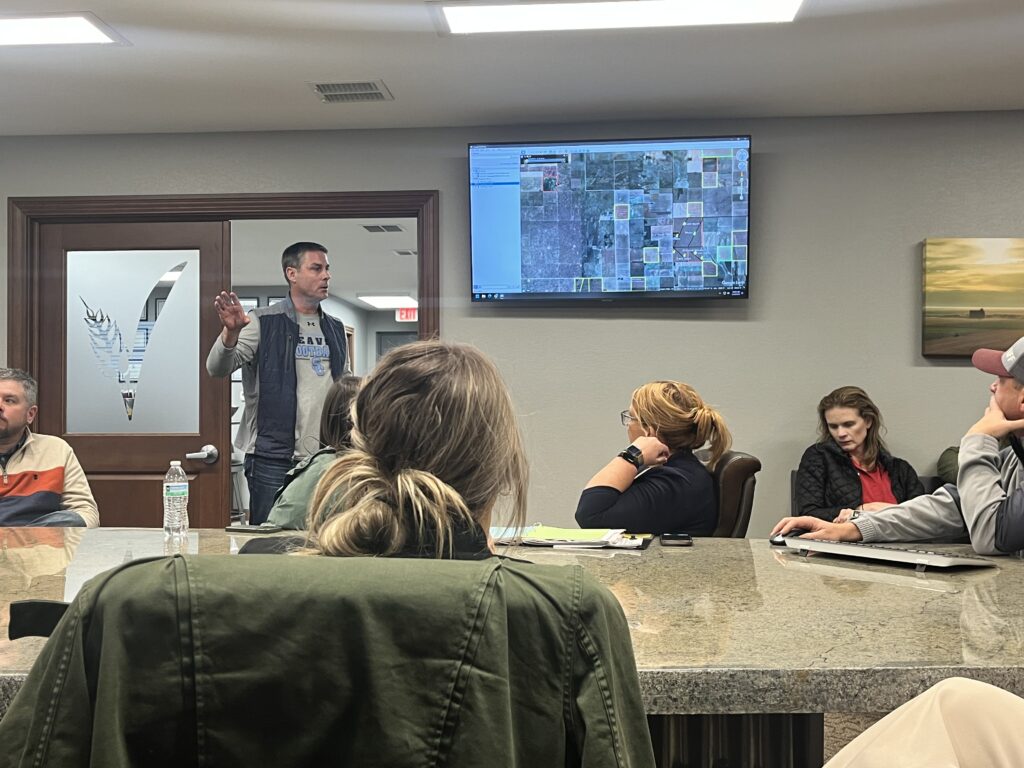
The Vulgamores also emphasized the importance of a diverse workforce to the southwest Kansas economy, especially the role of immigration in supporting agricultural operations. Additionally, Brian spoke about the evolution of farming practices to conserve water usage, showcasing their commitment to sustainability and resource management.
Their forward-thinking management style, coupled with these strategic priorities, has allowed them to expand their operations while staying true to their values. The Vulgamores’ story illustrates how embracing change, prioritizing sustainability, and investing in leadership can secure success in a rapidly evolving agricultural landscape.
Our next stop was the Spencer Flight Center, where we learned about the future of food from Earl Roemer of Nu Life Foods. Earl’s presentation highlighted the growing demand for gluten-free and sustainable food products and the role of sorghum in meeting those needs.
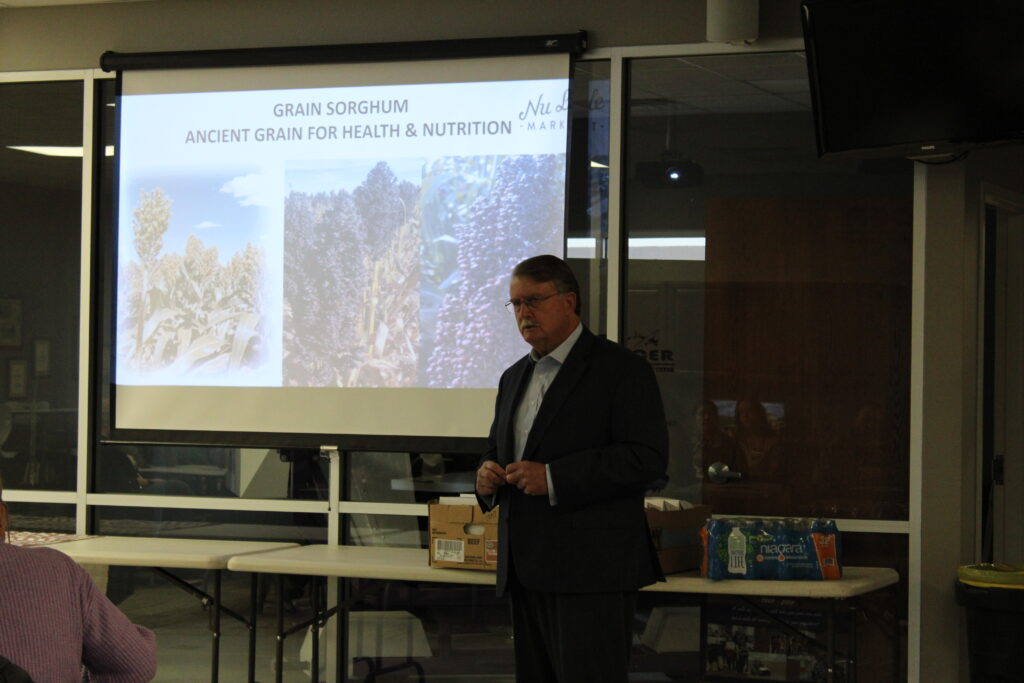
As the first U.S. company to produce sorghum flour with a negative net carbon footprint, Nu Life Foods is leading the charge in sustainability and innovation. Sorghum’s numerous health benefits—anti-inflammatory properties, high antioxidants, and rich levels of iron and B6—position it as a versatile superfood. Earl discussed how consumer trends are moving toward GMO-free, allergen-free, and environmentally friendly options, and how sorghum-based products like cereals, pastas, and baked goods offer a practical and nutritious solution. Nu Life Foods exemplifies how agricultural innovation can transform consumer perceptions and expand market opportunities for traditional crops.
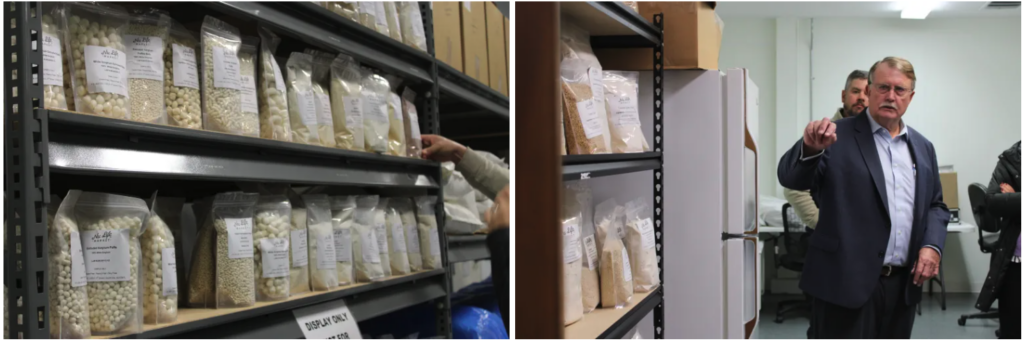
The day ended with a debrief session and an optional tour of the Nu Life plant, leaving us inspired by the ingenuity, leadership, and growth we witnessed. Each stop reinforced a common thread: Kansas agriculture thrives on bold leadership, forward-thinking strategies, and a commitment to continuous improvement. Together, these qualities ensure a bright future for the industry.
The next stop for KARL Class XVII will be in early December as the group will meet in Goodland, Kansas, to experience their NWKS seminar.